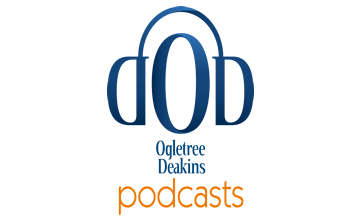Podcast: Play in new window | Download () | Embed
Subscribe: Apple Podcasts | Spotify | TuneIn | More
In this episode of our Cross-Border Catch-Up podcast series, Goli Rahimi (Chicago) and Kate Thompson (New York, Boston) unpack Singapore’s new Workplace Fairness (Dispute Resolution) Bill to explain how the new grievance and dispute resolution process will work, and what procedural safeguards and employee protections will come into effect. The speakers outline timelines toward an anticipated 2027 effective date, highlight employer defenses, and offer practical steps global employers can take now to prepare for a culture of early resolution and legally robust fairness practices.
